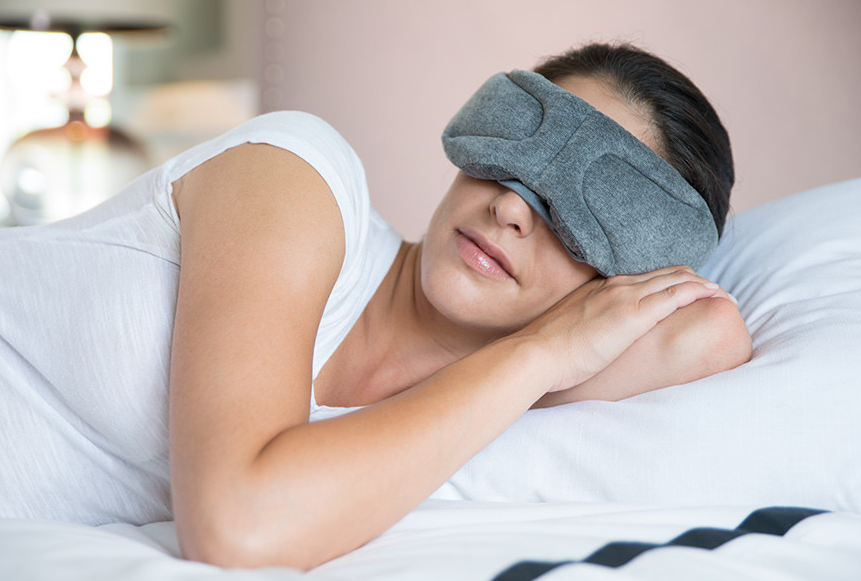

Did you know that there are different types of sleep apnea syndrome? That's right. The most common one is obstructive sleep apnea. And it is treatable, especially with the popular continuous positive airway pressure treatment. But central sleep apnea syndrome is an entirely different spectrum of sleep-disordered breathing. Let's learn more about it below:
Sleep Apnea is a medical condition where a person stops breathing while sleeping. It is a respiratory and breathing issue. There are three types of sleep apnea - obstructive sleep apnea (OSA), Central Sleep Apnea (CSA), and Complex Sleep Apnea (Treatment-emergent central sleep apnea).
Obstructive sleep apnea, or OSA, is the most common form of sleep apnea. It happens to almost 1 in every 4 individuals. The reason is usually physical, like airway blockage, nasal blockage, or some other kind of blockage.
Therefore, it is treatable with various approaches like weight loss, lifestyle management, CPAP therapy, or even surgeries.
Central Sleep Apnea is when your respiratory control centres don't work properly. It leads to brain not giving signals to breathing muscles. Thus, resulting in breathing cessation while a person sleeps.
As there aren't any physically obstructive respiratory events, central sleep apnea can't be treated with the same approach as Obstructive Apnea.
As you know, there is mild sleep apnea to severe central sleep apnea can develop in a person. Treatment and results will vary for people. Often, a normal treatment approach can be used for people with mild to moderate CSA, but those with severe conditions will need urgent treatment.
But that's not all. There are different types of CSAs:
It is the unpredictable central sleep apnea where a person experiences a cycle of deep breathing patterns that continue to get deeper. This is followed by shallow breathing patterns. Finally, the breathing pauses.
This is a less worrisome type of sleep apnea. It occurs when a person moves to a high altitude, and thus, they develop some form of sleep disorder (apnea). Usually, adapting to the high altitudes or moving back to normal altitudes fixes the issue.
This is a more common type of central sleep apnea that happens because of some other medical condition a person is suffering from. It can also be caused by certain medications or even sleep medicine.
Treatment-emergent central sleep apnea is also known as complex sleep apnea. It happens when a person with OSA develops CSA or vice-versa. As it can lead to treatment and medical complications, an imminent treatment, often a surgical procedure, is required.
Just like other sleep disorders, central sleep apnea occurs with similar symptoms and disorders. The major difference is that in OSA, a person snores loudly, while in CSA, the person stops breathing and often wakes up from sleep. Other symptoms include excessive daytime sleepiness, poor quality sleep, feeling tired or sleepy, often waking up with headaches even after a good night's rest, etc.
People with CSA might not necessarily wake up in the middle of the night when they stop breathing. Sometimes, the breathing stops only for short seconds and resumes so a sleeping person might not even notice it.
Just like other sleep-related breathing disorders, the treatment begins with lifestyle changes and sleep study. The apnea-hypopnea index will tell you the severity of your condition.
As CSA is usually related to some other underlying medical condition, the treatment for that will begin. If that doesn't work, you will get medications. If the sleep specialist deems fit, they might not provide medication. Often, some form of supplemental oxygen procedure is required to ensure stable sleep.
As an alternative, they might offer a form of CPAP therapy to regulate breathing in the form of an adaptive servo-ventilation technique, which has been quite effective in CSA treatment. But if your insurance doesn't cover it, or if you can't afford it, normal BiPAP (Bilevel Positive Airway Pressure) or APAP (Automatic Positive Airway Pressure) machines might be prescribed. Even CPAP therapy might work.
Central Sleep Apnea should not be confused with congenital central hypoventilation syndrome, which is a birth defect. Usually, patients with heart failure or strokes tend to suffer from CSA. Congestive heart failure patients definitely develop it.
Hopefully, you have received all your answers for the CSA (Central Sleep Apnea), its symptoms and treatment options.
Leave a comment